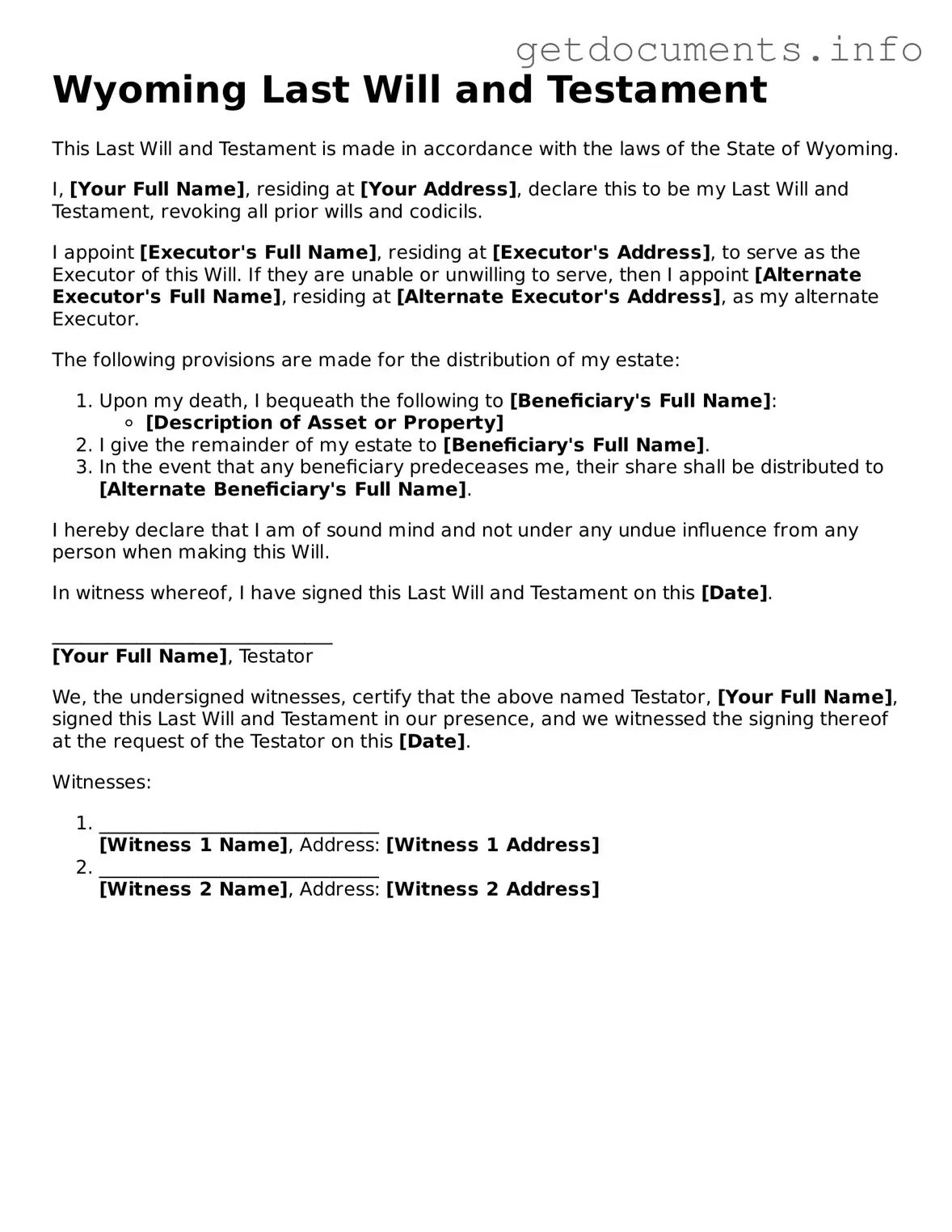Free Last Will and Testament Template for Wyoming
A Wyoming Last Will and Testament form is a legal document that outlines how a person's assets and affairs should be managed and distributed after their death. This essential tool ensures that your wishes are honored, providing peace of mind for both you and your loved ones. Ready to take the next step? Fill out the form by clicking the button below.
Access Last Will and Testament Editor

Free Last Will and Testament Template for Wyoming
Access Last Will and Testament Editor
Got places to be? Complete the form fast
Fill out Last Will and Testament online and avoid printing or scanning.
Access Last Will and Testament Editor
or
⇩ PDF File
